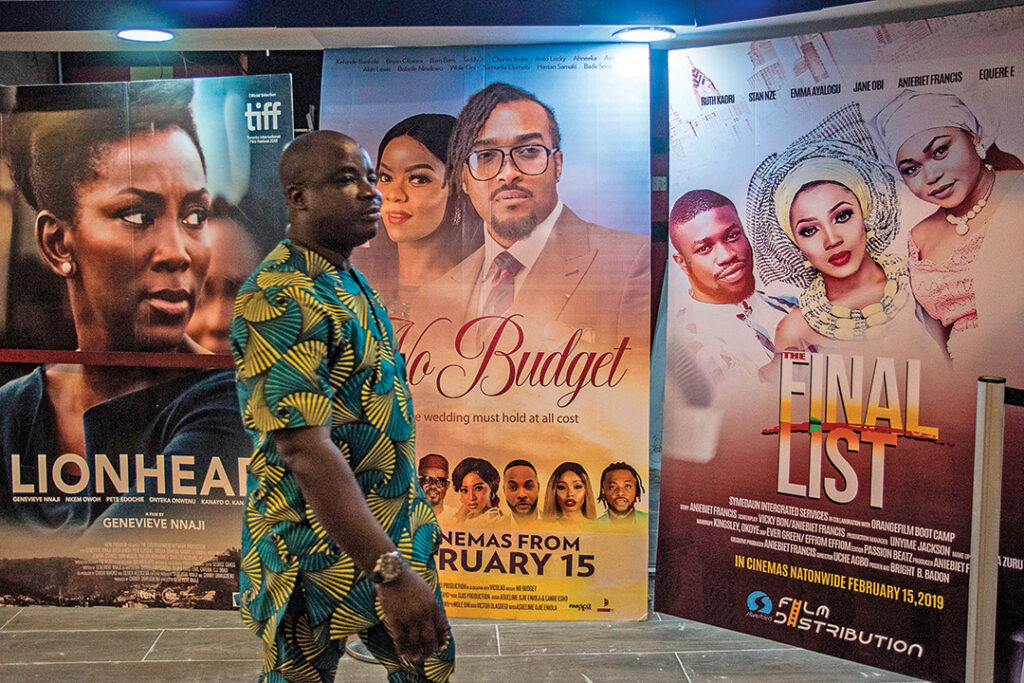AGENCE FRANCE-PRESSE
As COVID-19 closed businesses around the world and forced billions to stay home, Nigerian director Obi Emelonye came up with an innovative way to keep filming.
Inspired by his wife’s teleconferencing calls from their isolation in Britain, he wrote and put together a short feature about a couple separated between London and Lagos.
There was just one day for rehearsals and two for filming. The actors recorded scenes on mobile phones in their homes on two continents.
“I wanted to show young people that despite the countless difficulties of our profession, despite the coronavirus, you can make a film without funding, without even a real camera,” the director said.
In the face of the pandemic, the second-most prolific film industry on the planet needs its inventive spirit more than ever.
Moses Babatope watched as a government order to close saw income evaporate in spring 2020 at the Filmhouse, a cinema chain he co-founded in 2012. He estimated that losses for the sector reached more than $9 million in that time.
Dozens of film shoots have been put on hold or scrapped, and workers are going unpaid.
Netflix suspended the filming of its first original series made in Nigeria, and French media giant Vivendi delayed the opening of its first cinema in the capital, Abuja.
Distributors estimate 50,000 jobs are under threat. “It’s going to take a while before it really starts up again,” Babatope said.
To navigate the troubles, the industry began pushing its boundaries. Producer Charles Okpaleke teamed up with local cinema chains Genesis and Silverbird to launch open-air drive-in facilities.
A first screening in Abuja in late May 2020 sold out in just a few hours as viewers flocked to watch his film Living in Bondage from the comfort of their cars.
Producers and directors also are looking to release their films on streaming services such as Netflix and its local competitor Iroko TV.

